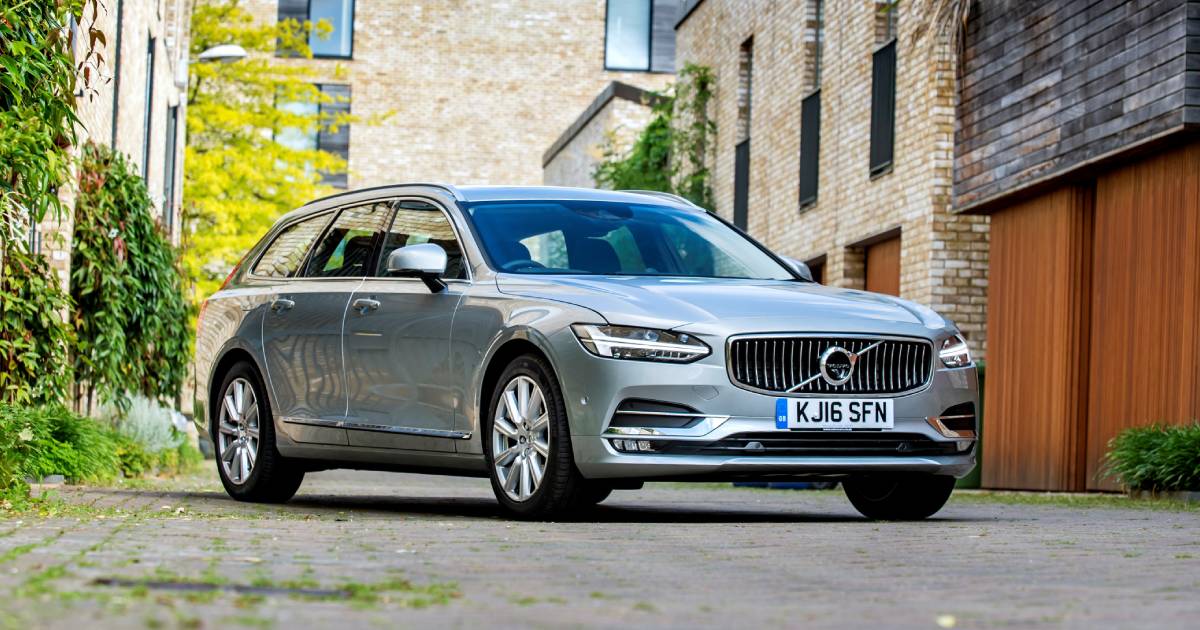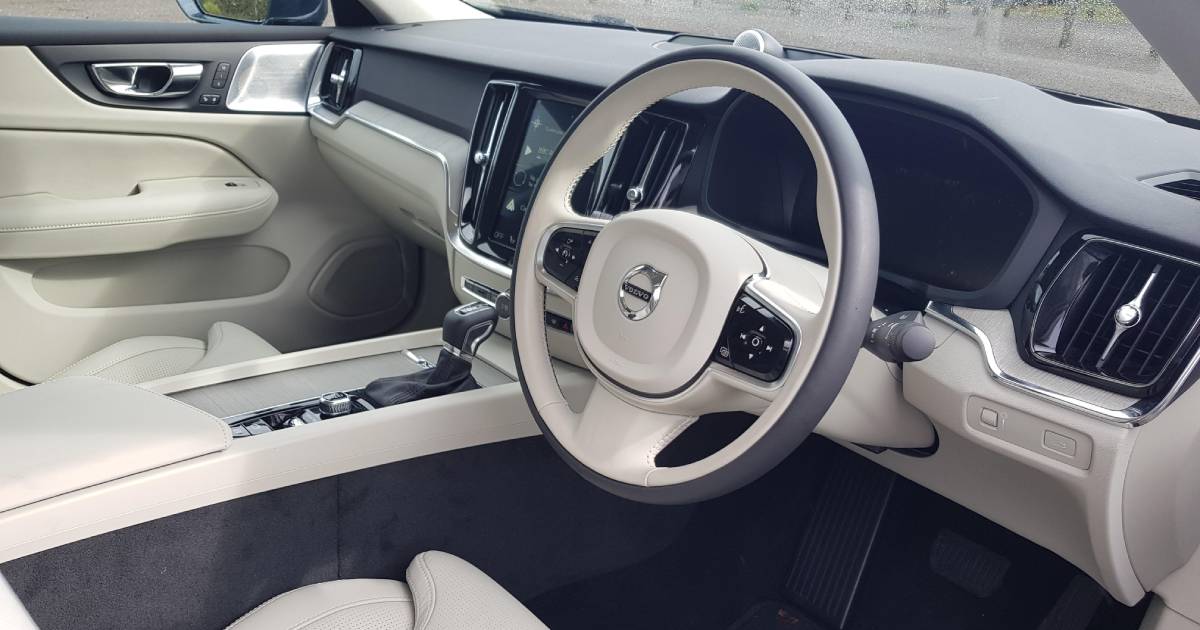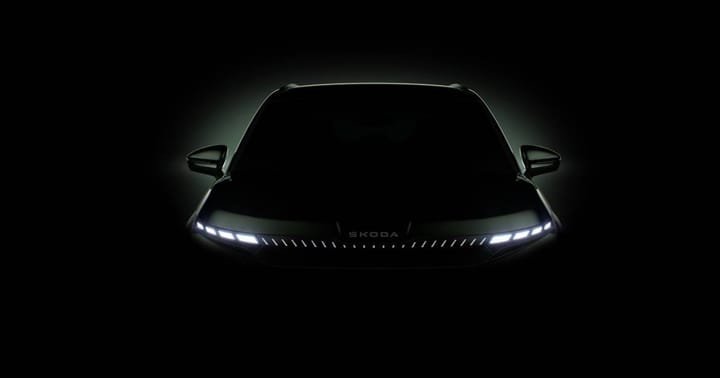Another car maker walks back its EV/petrol strategy
Volvo brings back V60 and V90: estate cars with petrol engines

In the 97 years since it was founded the Volvo brand has become known best for three things. First, for being Swedish, naturligtvis, second, for having a strong focus on safety, and third, for its estate cars.
The first two of those aspects remain largely unchanged in buyers' minds (despite Volvo having been majority owned by Geely for fifteen years, and despite one reviewer saying the EX30's over-reliance on touchscreen controls "genuinely compromises safety"), but the firm has increasingly moved its attention away from estate cars over the years, with more and more Volvo SUV models arriving since the XC90’s monumental success began at the turn of the millennium.
As a result we got the smaller XC60 then the smaller-still XC40, which, like the XC90, have a petrol engine plus some form of hybridisation, Volvo having ditched diesel entirely. Electrification then saw the EX90, EX40, EX30 and EC40 EV SUVs dominate the maker’s line-up, the V60 and V90 petrol/diesel estate cars cuckooed out in 2023 alongside their S60 and S90 saloon stablemates.
At the time Volvo said the move was made because fewer than one in 10 buyers opted for the defunct models, but while accountants clearly have an important role to play in any firm, I would love to have been a fly on the wall during the board-room conversations that led to this culling. Brand reputations take eons to cement, after all, and with the Volvo estate being far more of a cultural lynchpin than ‘Mondeo man’ (how quickly he was forgotten) and most other motoring tropes, doing away with decades of hard-won heritage was certainly an interesting choice, and one I bet not everyone senior in Gothenburg agreed with.
It was also the wrong choice, according to Volvo, as the firm has announced it is bringing back both the V60 estate (a rival for BMW’s 3 Series Touring and Audi’s A4 Avant), and the larger V90, which contends with the BMW 5 Series Touring, Mercedes E-Class Estate et al. The V60 will be offered as a ‘mild’ hybrid (effectively a normal petrol car) or a plug-in hybrid, with the V90 offered only as a plug-in petrol. The company says it is “not uncommon for us to remove certain models or derivatives from sale and reintroduce them later”, which is perhaps not the first fact that springs to mind, and arguably has a hint of ‘nothing to see here, move along’ – which should always be taken as an indication to look more closely.
A scrutineer may well ask whether Volvo is bringing back the V60 and V90 due to queues of estate-car fans lining up outside dealerships, or if something else is also afoot: my gut tells me that demand for Volvo's electric SUVs has been underwhelming – surely the estate twins wouldn't be returning if business were booming. For fairness I should add the company’s statement only mentions “a resurgence for our estate products in recent months”, though whether the one in 10 figure has changed meaningfully since last summer is not detailed.

Volvo’s decision to bring back cars that solely or predominantly run on petrol isn’t a one off for the car industry. Just a couple of weeks ago Fiat announced it is to build a new hybrid version of the 500 city car in Italy, almost certainly on an adapted version of the electric 500e’s platform, with this move thought to be driven by poor sales of the 500e and the ageing platform the petrol 500 sits on.
Volvo accurately says it operates in a “fast-moving industry”, and “continually re-evaluate[s]” its lineup to ensure it has “the right mix to serve all our customers”. This both places a clear emphasis on consumers rather than political mandates for electric cars, and shows a company unafraid to perform a handbrake turn with the oil tanker that is automotive strategy – something we've seen more than once of late.
Only a month ago, for example, a Ford bigwig told the audience at a Financial Times’ conference that the firm could restrict sales of petrol and diesel cars to avoid fines of £15,000 for every car sold over the UK’s preposterous (and escalating) quota that demands 22% of all car makers’ sales be made up of electric vehicles in 2024 (as an aside, 2028 will bring the real crunch as over half new cars sold must be pure EV by then).
Mercedes, Toyota, Subaru, Mazda and BMW may have been making less seismic grumblings on this topic, but each has sounded notes of caution and concern over a pure-electric future, with the a gaffer from the latter saying only days ago that the company will continue to make petrol and diesel cars “for the foreseeable future”. Taking this statement literally, we can already foresee the automotive future up to 2035 due to the legislation that has been written up 'til then.
Even the European Commission isn't averse to such pivots, both mandating increasing numbers of buyers must opt for electric cars, and whacking vast tariffs on many of the more affordable EVs on the market due to the fact that they are manufactured in China.
It doesn't take much poetic licence to see that the prevailing mood music in the automotive world now revolves around tensions between the cars governments want manufacturers to make, and the cars consumers wish to buy; this leitmotif has been established, and little looks likely to silence it in the coming years.


